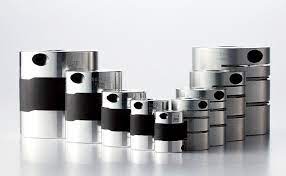A coupler is a device used to connect two pieces of equipment or machinery. These are used in various applications, including construction, agriculture, and manufacturing, offering numerous benefits. For example, if you choose something like a layflat hose coupler for your equipment, your operational efficiency will increase, and downtime will reduce significantly.
So, if you are considering purchasing a coupler, consider the key factors discussed in the following section and make an informed choice.
Compatibility
Compatibility is one of the most important factors when choosing a coupler. The coupler you choose must be compatible with both pieces of equipment it will connect. This means considering both the size and type of the coupler needed. Some common types of couplers include hydraulic, mechanical, and pneumatic.
Hydraulic couplers are used for applications that require high pressure and heavy flow, such as construction equipment. On the other hand, mechanical couplers are designed for applications requiring less pressure, such as agricultural equipment. Pneumatic couplers are used for compressed air applications and are commonly found in manufacturing facilities.
Ease of Use
You must consider the ease of use when choosing a coupler. Your coupler should be easy to connect, disconnect, and operate. Some couplers may require tools for connection or disconnection, while others can be operated by hand. Depending on your application, you may also consider couplers with safety features, such as locking mechanisms, to prevent accidental disconnection.
Flow Rate
The flow rate of a coupler refers to the amount of fluid or air that can flow through it. It’s important to choose a coupler with a flow rate that matches the requirements of your application. If the flow rate of the coupler is too low, it can cause pressure drops and decreased efficiency. If it is too high, it can lead to excess pressure and potential damage to equipment.
Material
Another important consideration when choosing a coupler is the material. Different materials are suited for different applications, and some materials may be more durable than others. Some of the most common materials for couplers include steel, aluminum, and brass.
Steel couplers are highly valued for their strength and durability, making them a widely preferred option for various heavy-duty applications across different industries. In contrast, aluminum couplers are highly sought-after due to their lightweight nature and excellent corrosion resistance, making them an ideal choice for marine environments and other moisture-prone settings.
If you’re looking for a coupler that boasts excellent corrosion resistance, brass couplers are your go-to option. Their resistance and durability make them highly useful in various applications, especially where hygiene and sanitation are of utmost importance. These applications could range from producing and processing food and beverages to pharmaceutical manufacturing and chemical processing.
It’s worth noting that the choice of coupler material should always be made carefully considering the intended application. For instance, if your application involves the movement of highly corrosive materials, then steel couplers may not be the best choice due to their susceptibility to corrosion. On the other hand, aluminum couplers would be the best option to consider when you are dealing with lightweight materials that require flexibility.
Cost
Finally, the cost is another essential factor to consider when choosing a coupler. So, while getting a high-quality layflat hose coupler, you should also want to ensure that you’re getting good value for your money. Compare prices and consider the long-term maintenance and replacement costs when making your decision.
In conclusion, choosing the right coupler for your equipment ensures efficient operation and minimizes downtime. Consider compatibility, ease of use, flow rate, material, and cost when selecting. By taking the above factors into account, you can choose a coupler that meets the needs of your application and provides reliable performance.
















